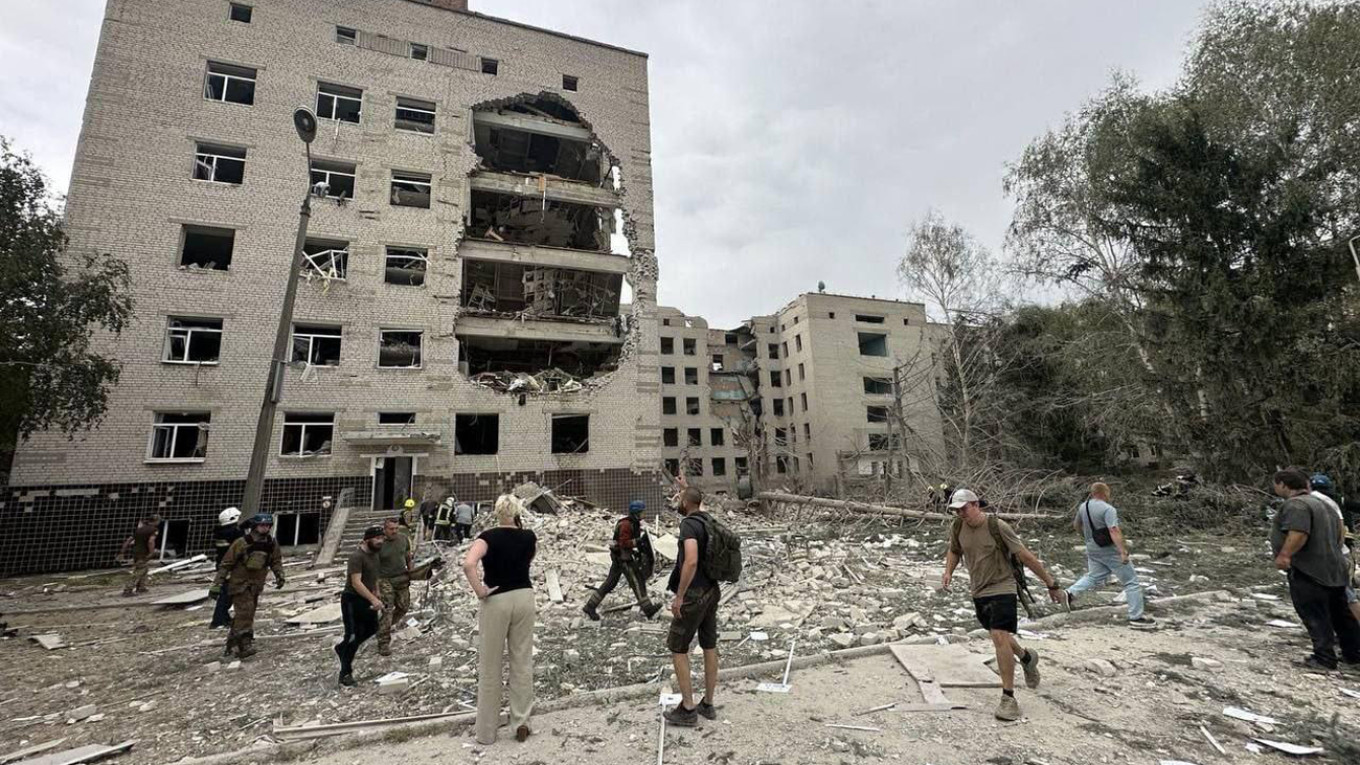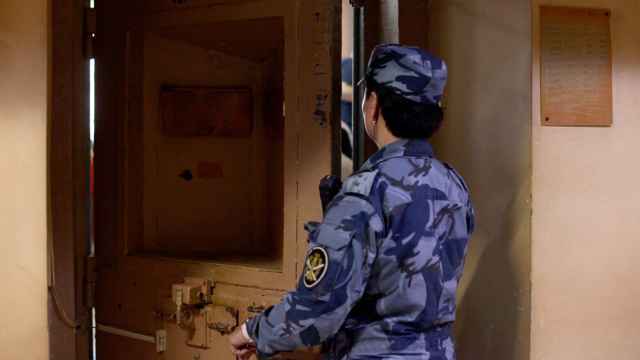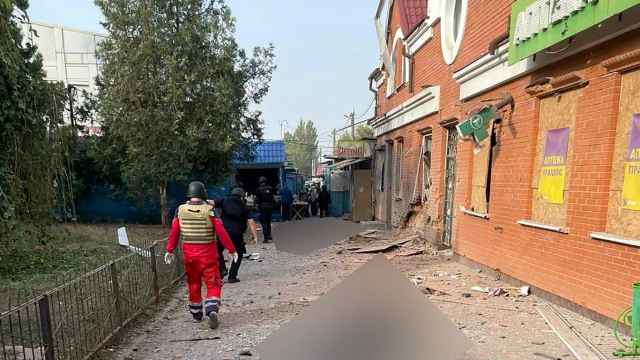At least 51 people were killed and hundreds wounded Tuesday in a Russian missile attack on the Ukrainian city of Poltava, authorities said, in one of the single deadliest strikes of the two-and-a-half-year war.
Kyiv said the strike hit a military education facility and a nearby hospital, though authorities did not say how many of the victims were military or civilians.
Ukrainian President Volodymyr Zelensky vowed to hold what he called "Russian scum" accountable, while rescuers worked to clear the rubble.
"As of 6 p.m., 51 people were killed and over 200 wounded in the attack," the office of Ukraine's prosecutor general said.
Berlin, London and Washington all condemned the strike.
U.S. National Security Council spokesman John Kirby said the attack was "another horrific reminder of [Russian President Vladimir] Putin's brutality," adding that the United States would send more military aid to Kyiv in the coming weeks.
British Foreign Secretary David Lammy called it a "sickening act of aggression," while German Foreign Minister Annalena Baerbock said Putin's brutality "knows no limits."
'Full investigation'
The strike triggered anger on Ukrainian social media after unconfirmed reports said it had targeted an outdoor military ceremony, with many blaming reckless behavior from officials who allowed the event to take place despite the threat of Russian attacks.
Zelensky said he had ordered a "full and prompt investigation into all the circumstances."
Two Russian ballistic missiles hit the hospital and educational institution, partially destroying one of the buildings, Zelensky said.
The strike took place in the morning in Poltava, a city with a pre-war population of around 300,000 people, some 300 kilometers (190 miles) east of Kyiv.
"The window blew open. Dust was everywhere. I just had time to tell my sister that a rocket was flying," said Yevheniya Chyrva, a resident in a building damaged during the attack.
The defense ministry said that the time between the alarm and the arrival of the missiles was "so short that it caught people in the middle of evacuating to the bomb shelter."
The Poltava military communications institute, founded in the 1960s when Ukraine was part of the U.S.S.R., specializes in training telecommunications specialists.
"One of the institute's buildings was partially destroyed, and many people were trapped under the rubble," the defense ministry said.
An AFP journalist on the scene saw several ambulances heading towards the affected site shortly after the attack on the military institute.
Rescuers were still at work after managing to save 25 people, including 11 trapped under the rubble, the defense ministry said.
'More pain'
Official channels and local media shared messages urging locals to donate blood to help treat the wounded.
At the same time criticism of Ukrainian officials swirled online.
"Poltava... How can such a large number of people gather at such a facility?" said one blogger, Sergey Naumovich.
There had been some reports from Russian military bloggers that the strike targeted an outdoor ceremony.
Poltava's governor, Philip Pronin, said his administration could not provide more details of the circumstances of the strike "for security reasons."
"The enemy is using any means to bring Ukraine more pain and disorientate Ukrainians. Please trust only reliable sources," he said.
Ukrainian MP Maria Bezugla, who regularly criticizes the country's military leadership, accused high-ranking officials of endangering soldiers by allowing such events.
"These tragedies keep repeating themselves. When will it stop?" she posted on Telegram.
The attack follows another recent scandal for Ukraine's army command after a U.S.-made F-16 fighter jet crashed in combat last week, killing the pilot.
The crash of the F-16 was a high-profile setback for Kyiv, which had lobbied the West to send the advanced fighter jet for months, and triggered the dismissal of the country's air force chief, Mykola Oleshchuk.
A Message from The Moscow Times:
Dear readers,
We are facing unprecedented challenges. Russia's Prosecutor General's Office has designated The Moscow Times as an "undesirable" organization, criminalizing our work and putting our staff at risk of prosecution. This follows our earlier unjust labeling as a "foreign agent."
These actions are direct attempts to silence independent journalism in Russia. The authorities claim our work "discredits the decisions of the Russian leadership." We see things differently: we strive to provide accurate, unbiased reporting on Russia.
We, the journalists of The Moscow Times, refuse to be silenced. But to continue our work, we need your help.
Your support, no matter how small, makes a world of difference. If you can, please support us monthly starting from just $2. It's quick to set up, and every contribution makes a significant impact.
By supporting The Moscow Times, you're defending open, independent journalism in the face of repression. Thank you for standing with us.
Remind me later.






